
Ecogo: Sustainable Travel Platform
An education-first mobile platform connecting eco-conscious travelers with authentic sustainable tourism experiences while supporting local communities. This project addressed the critical gap where 89% of travelers don’t know about ecotourism despite growing environmental consciousness.
My Role: Product Designer | Team of 3 | 3.5 months
Working alongside two teammates, I led user research and analysis, product strategy development, persona creation, branding, wireframing, interface design, prototyping, and usability testing. This comprehensive project challenged us to design an ecotourism service that would genuinely connect users with meaningful environmental and cultural experiences.
The Process

Strategic Challenge & Market Opportunity
While travelers increasingly seek meaningful experiences that align with their values, they lack access to authentic sustainable options with transparent local impact. The existing travel platform landscape focuses primarily on tour bookings but misses the crucial educational and community connection aspects that drive long-term behavioral change.
Our research revealed that ecotourism represents “responsible travel to natural areas that conserves the environment, sustains the well-being of local people, and involves interpretation and education.” This definition guided our understanding that education must be inclusive of both staff and guests, creating a foundation for authentic sustainable travel experiences.
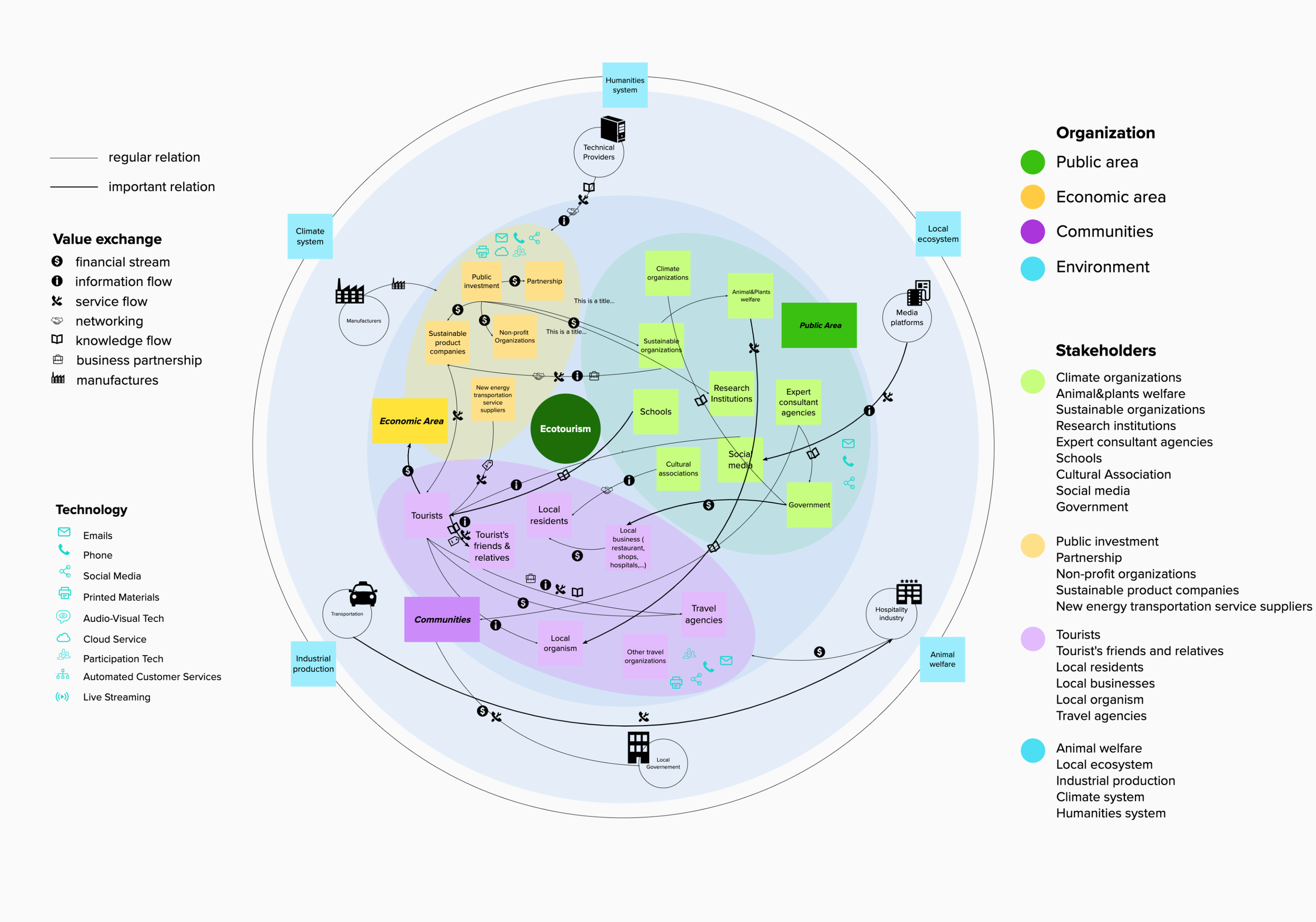
To better understand the operational system, we analyzed the ecotourism ecosystem, mapping relationships between travelers, local communities, conservation efforts, and tourism operators. This analysis revealed significant opportunities for innovation in how these stakeholders connect and collaborate.
Competitive Analysis
We conducted comprehensive analysis of two key players in the ecotourism space: Urban Adventures and Adventure Tours Australia, examining their value creation tactics, gaps, and innovation opportunities to inform our competitive strategy.
Urban Adventures positions itself as a “local know” brand focused on responsible tourism, working directly with local community members as tour guides and partnering with local NGOs and non-profits worldwide. Their key strengths include strong community engagement through local businesses, restaurants, and shops, plus online experiences like virtual cooking classes and city walks. However, our analysis revealed critical gaps in their customer journey support—while they excel at delivering local experiences, they lack systematic pre-departure guidance and post-travel engagement mechanisms that could deepen customer relationships and drive repeat business.
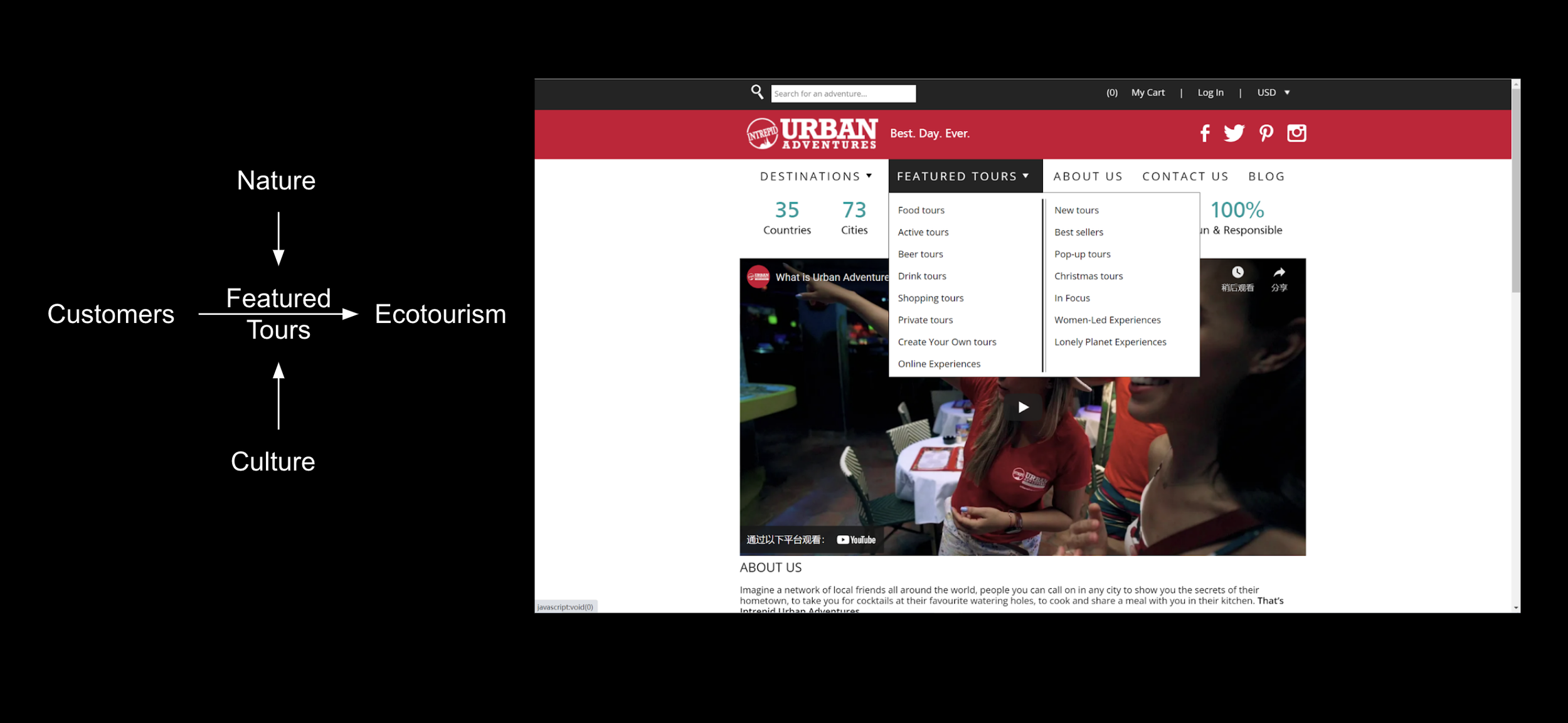
The company’s process limitations became apparent in their inconsistent approach to localization and absence of purposeful strategy across offerings. Their channel strategy particularly missed opportunities to leverage their strong NGO network for mutual promotion and customer acquisition. Most significantly, they offered no quality guarantees or systematic feedback mechanisms to ensure customer satisfaction, creating uncertainty for travelers investing in sustainable experiences.
Adventure Tours Australia demonstrates expertise in cultural experiences with environmental focus, offering expert guides, exclusive accommodation, and partnerships with Aboriginal communities for authentic cultural education. Their approach emphasizes low-impact, culturally-sensitive tourism with flight and tour packages that enhance customer convenience. However, they struggled with limited promotional channels, lacking flagship stores or marketing activities that could strengthen their brand presence.
More critically, their profit model showed vulnerability to customer sentiment changes and external disruptions, with limited diversification beyond core travel services. Their website provided minimal cost transparency, making it difficult for customers to understand value propositions or for us to analyze their business model sustainability.
Innovation Opportunities Identified:
These competitive gaps revealed three key areas where our solution could create superior value. First, the education gap—neither competitor provided systematic ecotourism education that would help travelers understand the impact and importance of their choices. Second, the engagement gap—both lacked comprehensive pre- and post-travel support that could build deeper customer relationships and drive behavioral change. Third, the transparency gap—neither offered clear metrics around local impact or environmental benefits, missing opportunities to build trust and justify premium pricing.
Our analysis confirmed that an education-first platform addressing these gaps could capture significant market share while creating genuine value for travelers, local communities, and conservation efforts. This insight directly informed our strategy to build a comprehensive ecosystem that supports travelers throughout their entire journey rather than just facilitating bookings.
User Research & Validation
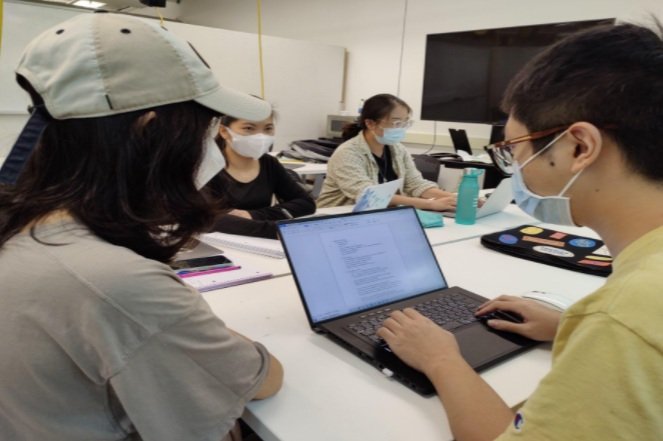
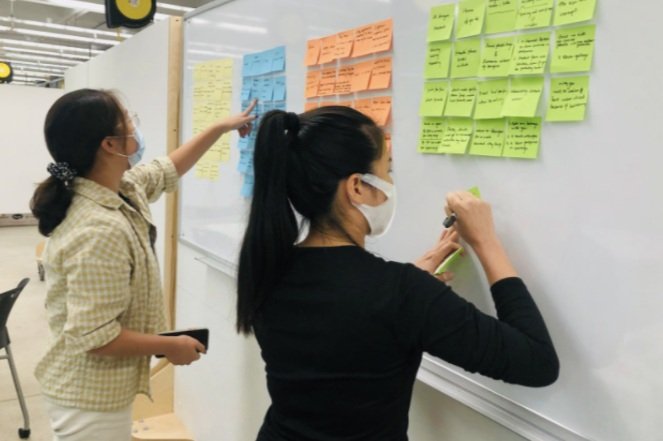
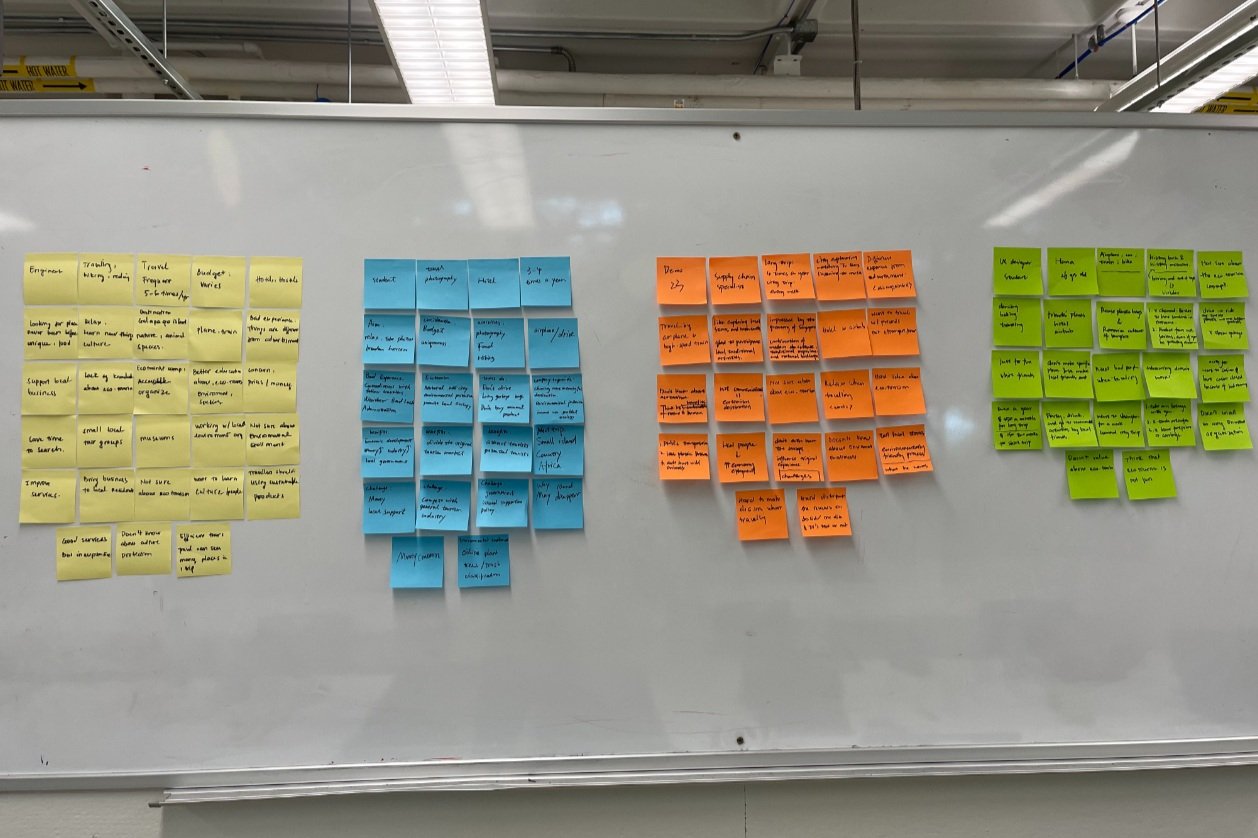
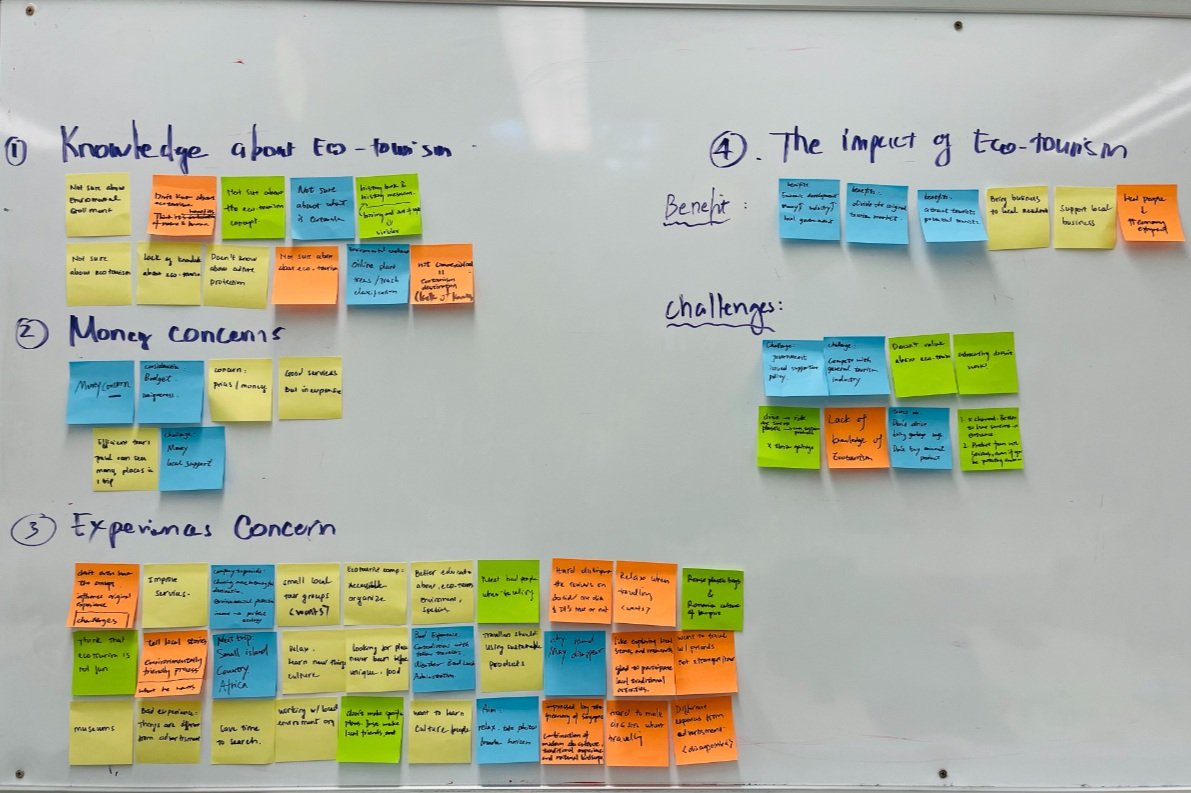
Through comprehensive user research with five frequent travelers, we confirmed high interest in sustainable travel but discovered a significant awareness gap around available options. The research revealed that participants didn’t know about ecotourism as a concept, yet they were eager to find novel, meaningful travel experiences that would connect them with local communities and environments.
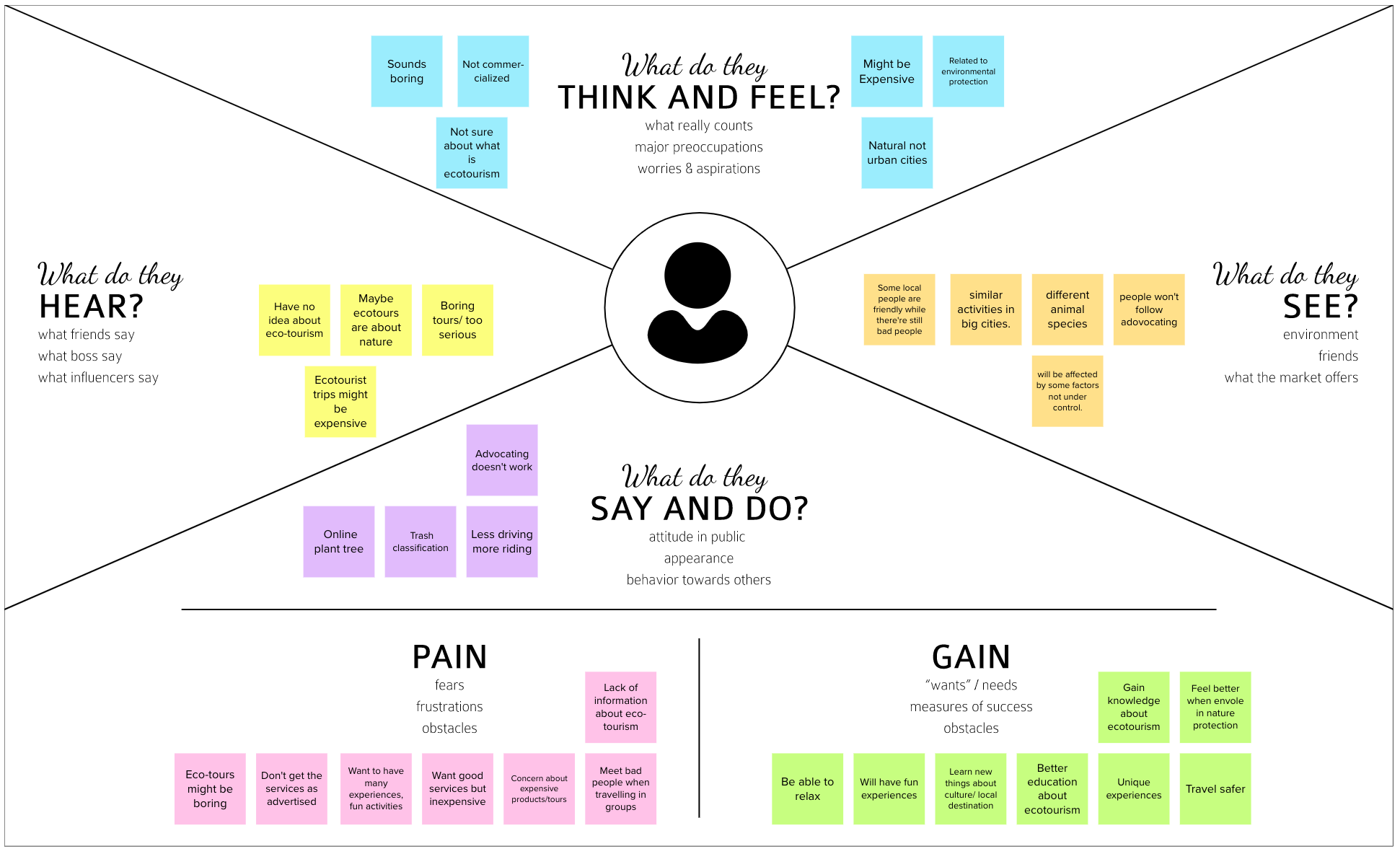
Our empathy mapping process organized participant insights into pain points, opportunities, thoughts, feelings, and behaviors. This synthesis revealed that travelers genuinely wanted to understand the real environmental and community impact of their travel choices, but lacked guidance in selecting meaningful tours. They also expressed strong desire for continued connection with the communities they visited, extending relationships beyond single trips.
Key Pain Points Identified
- Never heard of ecotourism despite being environmentally conscious
- Overwhelmed by travel options without clear sustainability guidance
- Unable to find meaningful experiences beyond typical tourist offerings
- Wanted deeper community connections but no systematic way to establish them
- Insufficient post-travel support and connection with destinations
Strategic Opportunities Uncovered
- Education gap: Become trusted source for systematic ecotourism education
- Community connection: Facilitate relationships with locals throughout entire journey
- Impact transparency: Provide clear metrics on environmental and social benefits
- Journey support: Guide travelers from discovery through post-trip engagement
- Gamification: Reward sustainable behavior with measurable impact tracking
These insights directly informed our design strategy, confirming that an education-first platform could address fundamental market needs while creating genuine value for travelers, local communities, and conservation efforts. The pain points revealed specific feature requirements, while the opportunities guided our comprehensive ecosystem approach that supports travelers throughout their entire journey rather than just facilitating bookings.
User-Centered Design Strategy
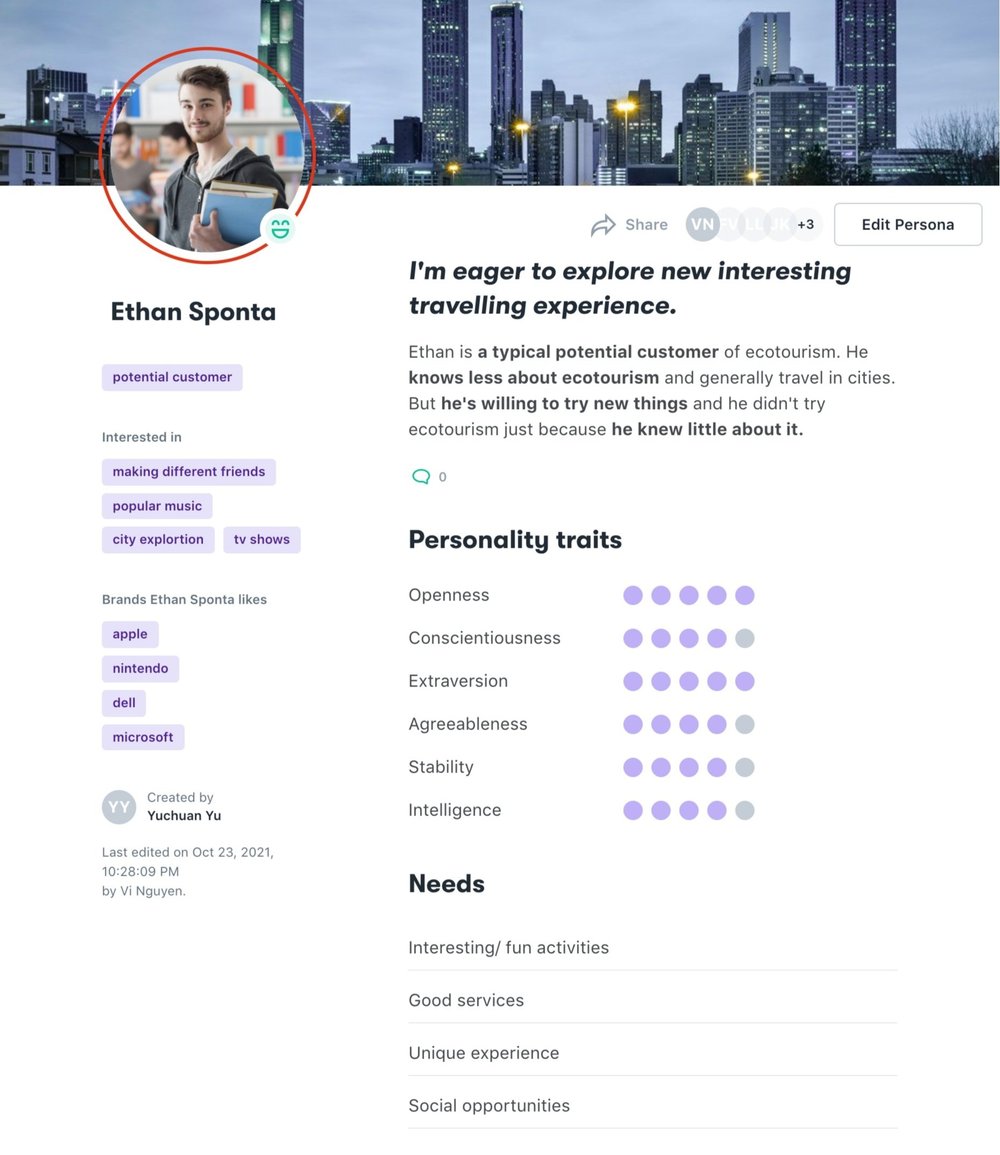
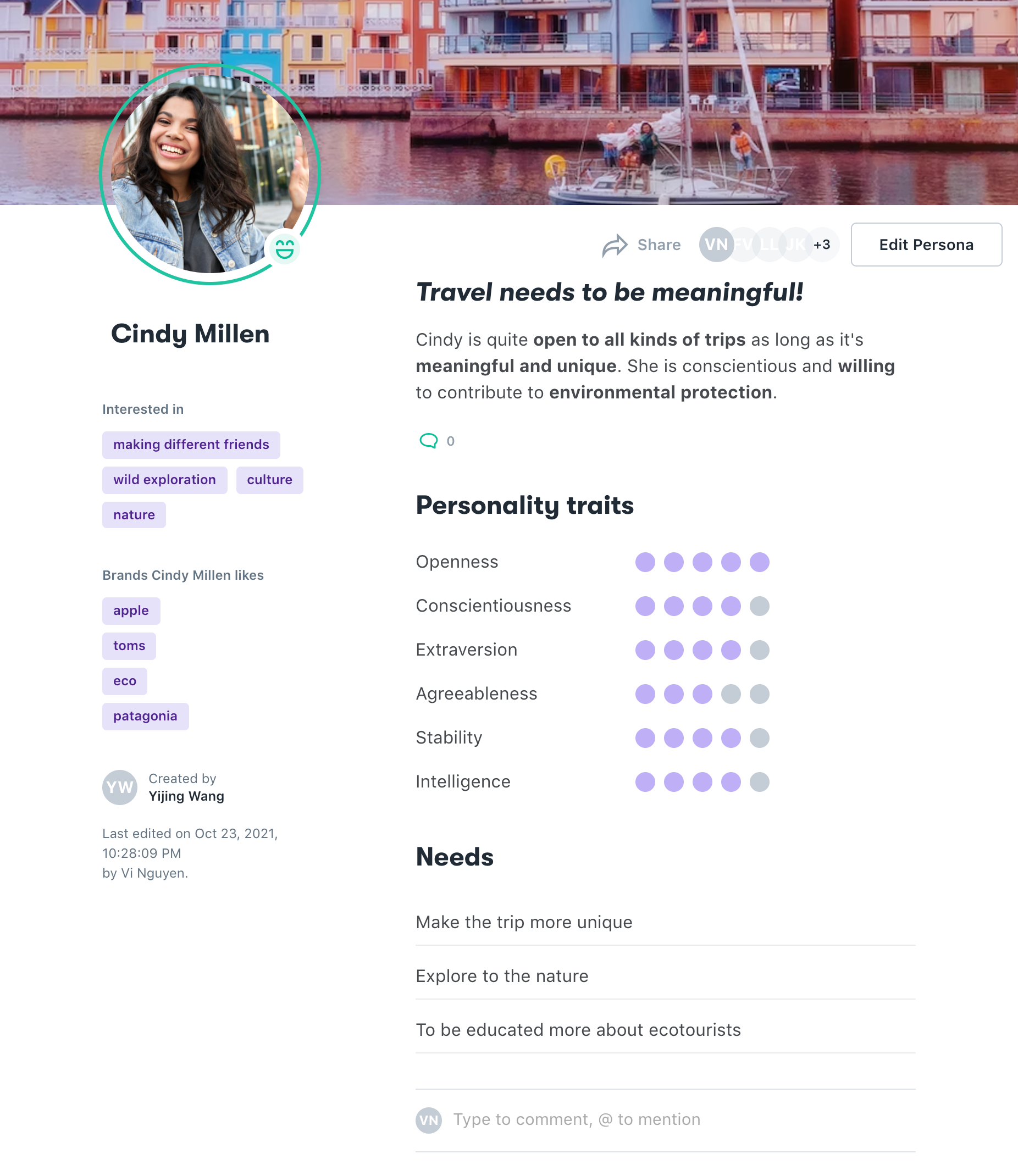
We defined two primary user types representing travelers who are open to trying new things, enthusiastic about green travel activities, and actively pursue meaningful, unique travel experiences. These personas guided our design decisions around feature prioritization and interaction design, ensuring we addressed the specific needs and behaviors of eco-conscious travelers.
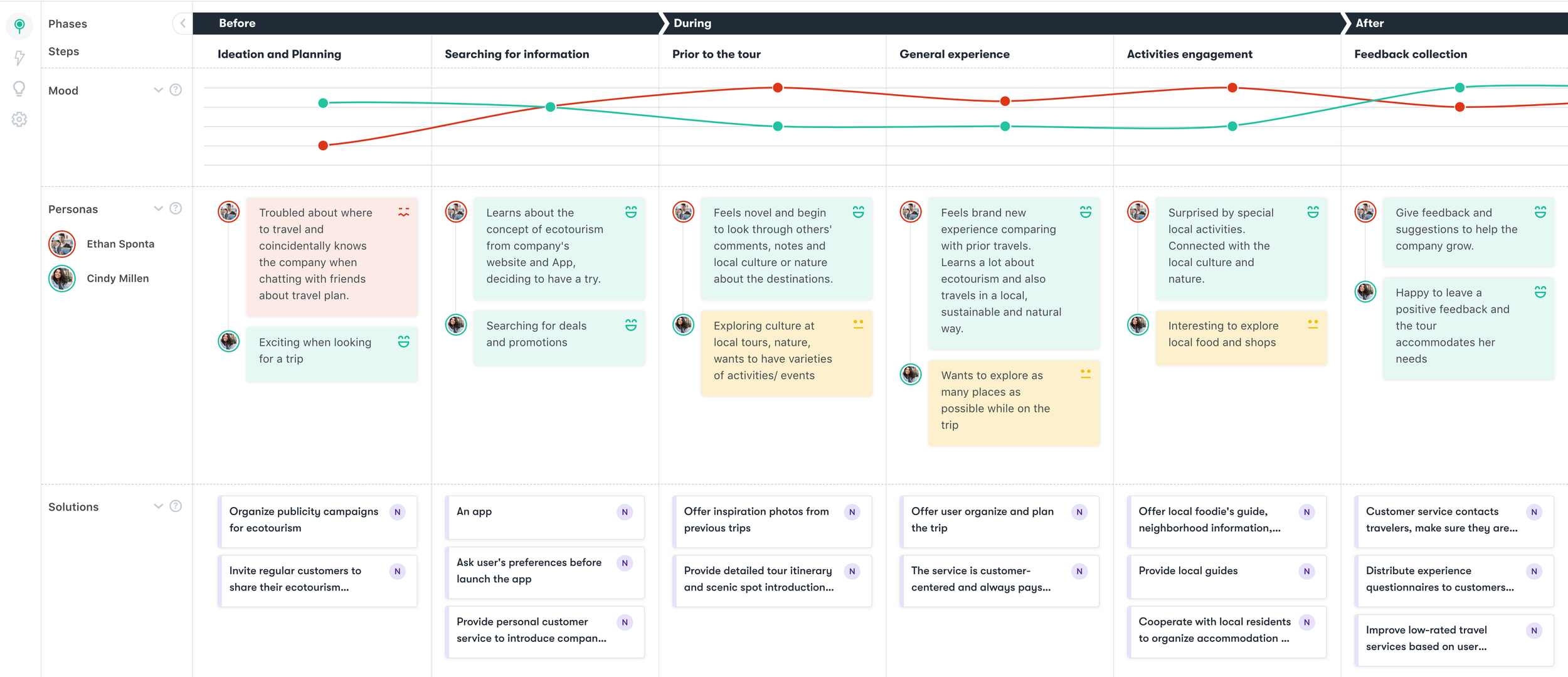

Our journey mapping revealed opportunities to support travelers throughout their entire experience, from initial discovery through post-trip engagement. This comprehensive view informed our decision to create a mobile application that would educate travelers about ecotourism while promoting eco-tours with transparent information about local economic and environmental impact.
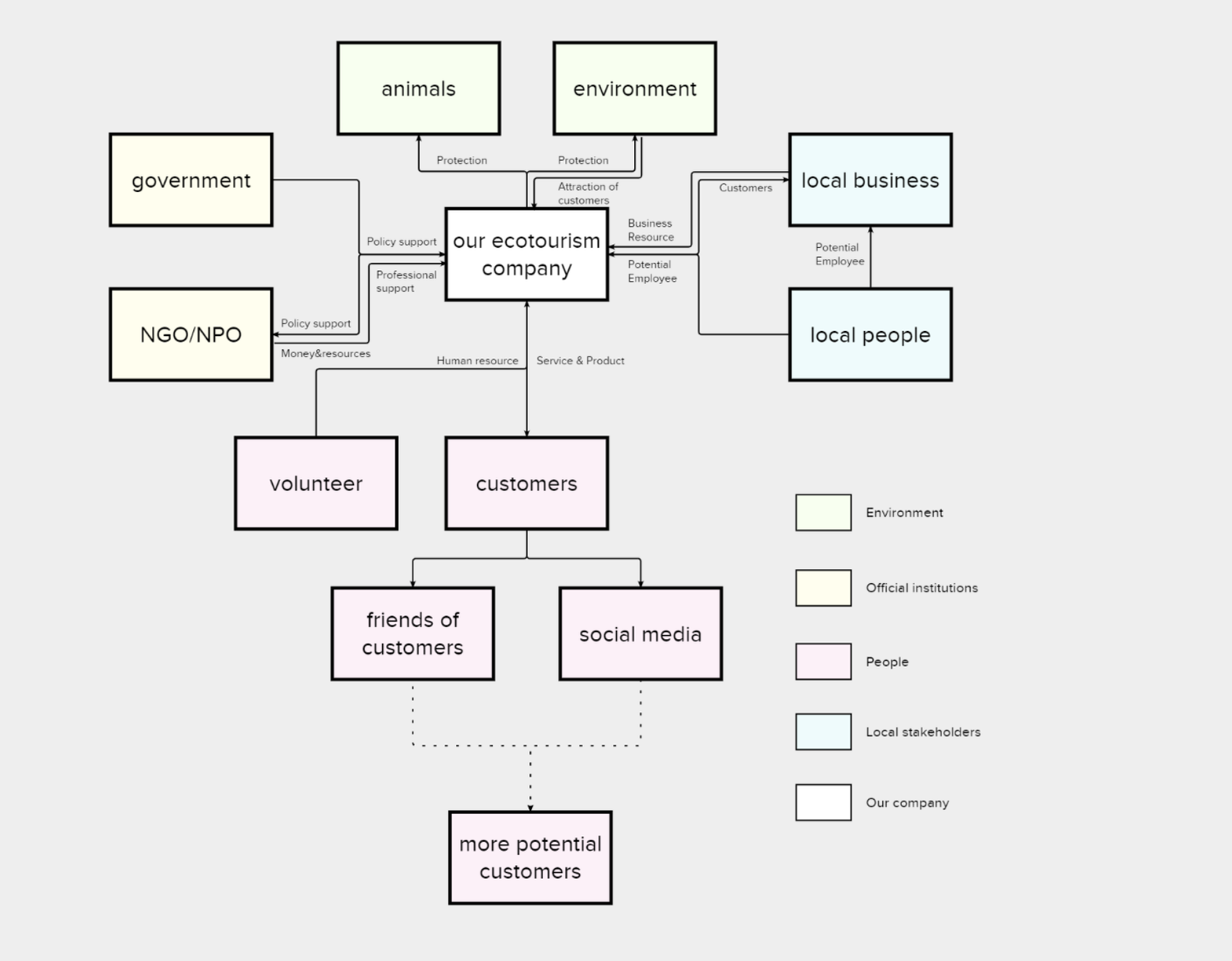
After defining the user journey, we created a new service system within the ecotourism scope, mapping how our platform would connect travelers, local communities, tour operators, and conservation organizations. This ecosystem design ensured that our solution would create value for all stakeholders while maintaining focus on sustainable impact.
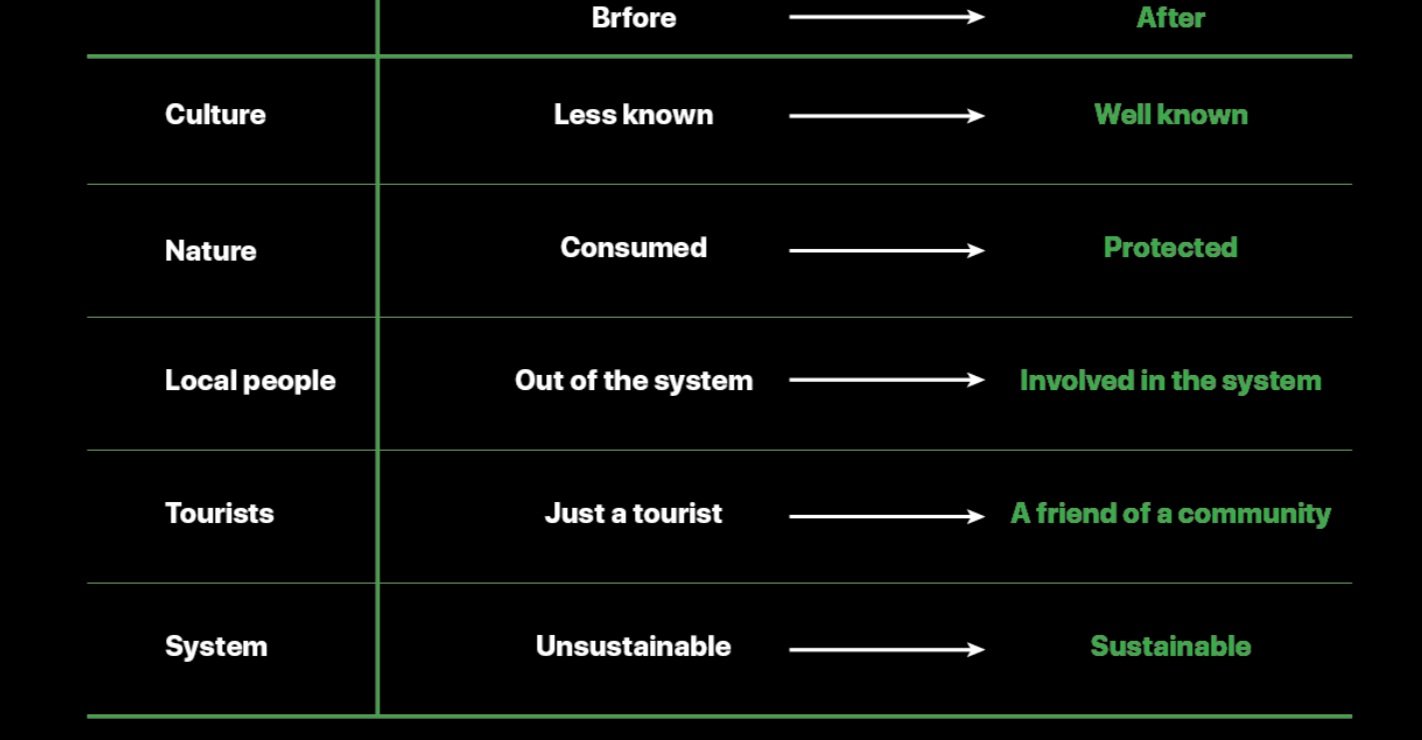
Brand Identity & Visual Design

Our brand strategy centered on creating a clean, friendly, minimalist design that would feel approachable and trustworthy. The moodboard guided our visual direction toward natural textures, calming colors, and organic forms that would resonate with environmentally conscious travelers.
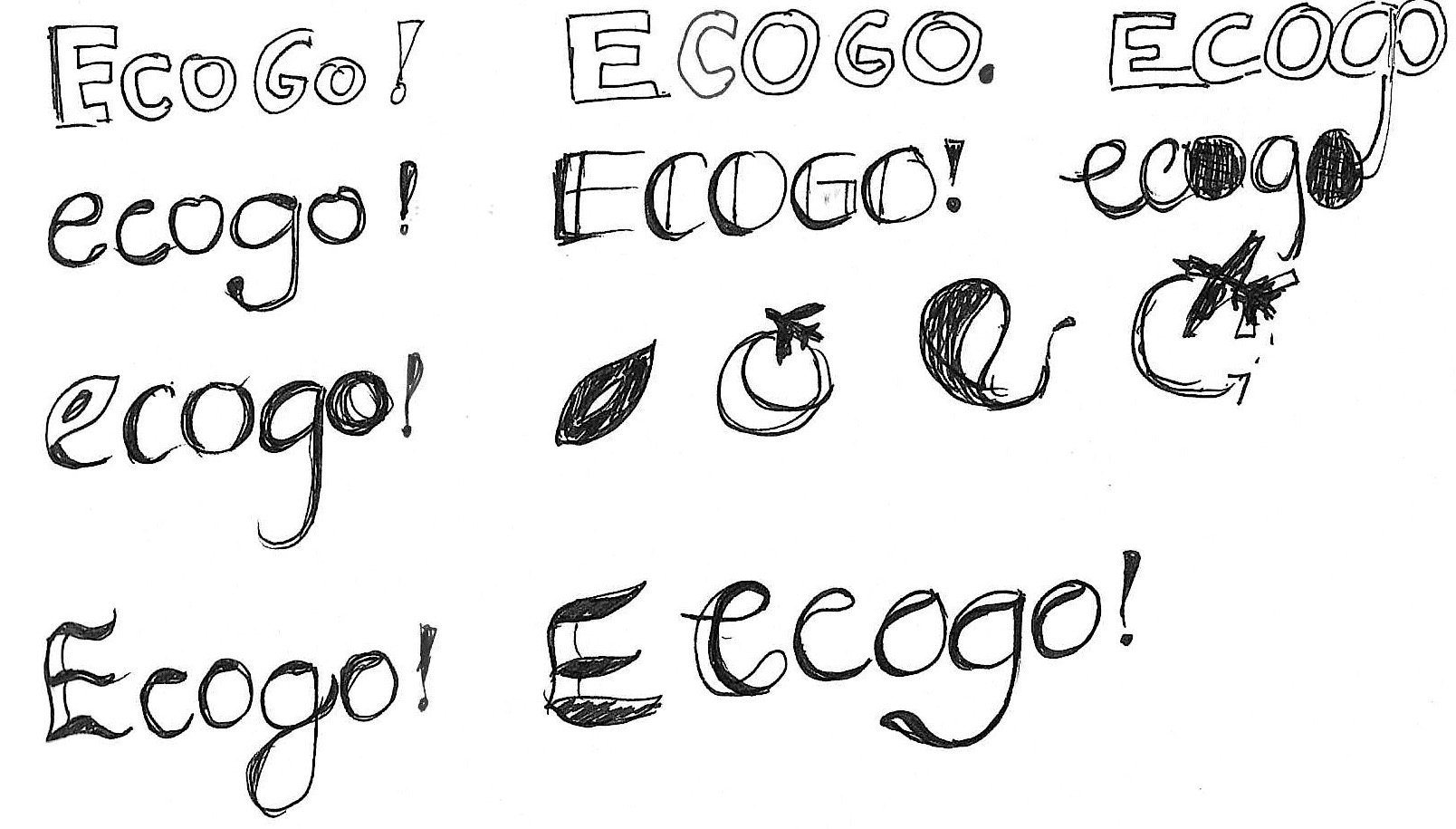
The logo development process explored various approaches to representing the brand’s core values of companionship, environmental consciousness, and cultural connection. We chose “Ecogo” as our brand name based on the idea that the app serves as a traveling companion and friend providing rich experiences from start to finish.

The final logo design emphasized friendliness and playfulness while maintaining clean, professional aesthetics that would appeal to our target audience of conscious travelers seeking authentic experiences.
Service Architecture & System Design
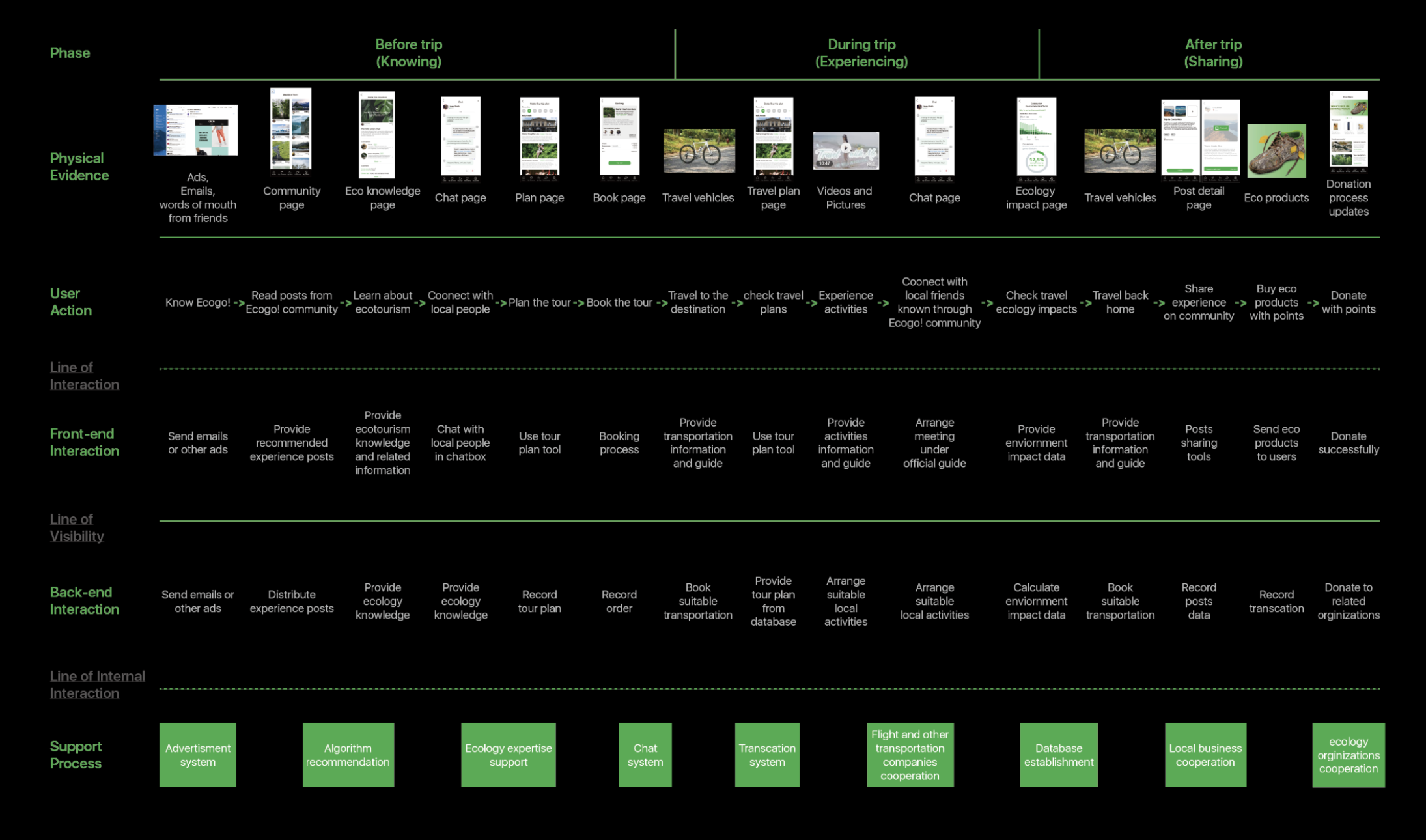
Our service blueprint mapped the entire user experience across three critical phases: pre-travel education and community connection, during-travel local facts and environmental impact tracking, and post-travel impact sharing and eco-points reward system. This comprehensive approach ensured seamless user experience while delivering educational value throughout the travel journey.
The blueprint identified key touchpoints where users would interact with local communities, access educational content, and track their environmental impact. This systematic approach to service design enabled us to create meaningful connections between travelers and destinations while supporting sustainable tourism practices.
Prototyping & User Experience Design
Three-Phase Experience Design
Before the tour:

The pre-travel phase focused on community connection, allowing users to learn about their destination through local perspectives and establish relationships before arrival. This approach transforms traditional trip planning into an educational and social experience that builds anticipation while supporting local communities.
During the tour:

The during-travel experience centered on local education, providing real-time information about cultural significance, environmental impact, and community benefits. This contextual learning approach helps travelers understand the deeper meaning behind their experiences while making informed decisions about their activities.
After the tour:
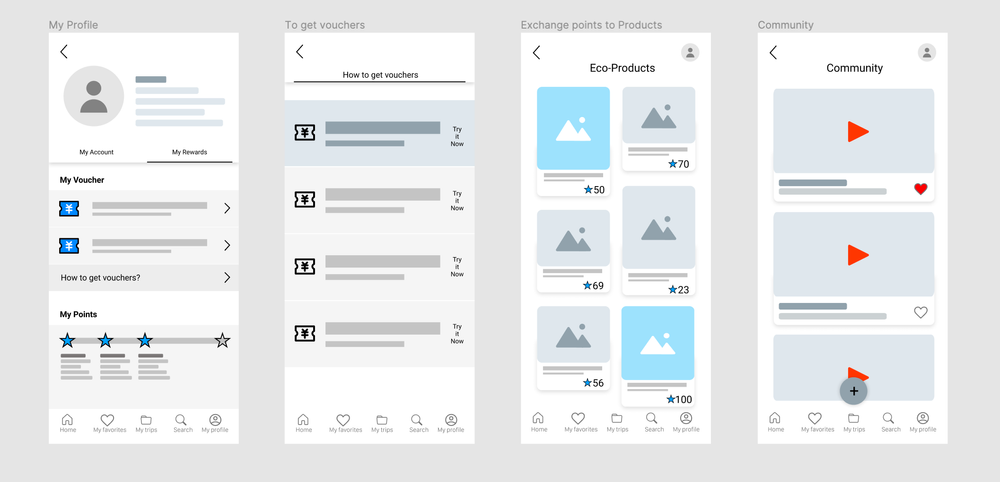
The post-travel phase emphasized impact sharing and community building, allowing users to reflect on their experiences, share their stories, and maintain connections with the communities they visited. This sustained engagement model differentiates our platform from traditional booking services.
User Testing & Iteration
Through testing with five participants, we discovered specific areas where the platform needed enhancement to better serve user needs. Participants consistently requested more detailed tour guide profiles and reviews to build trust before booking, reflecting the importance of personal connection in sustainable travel decision-making.
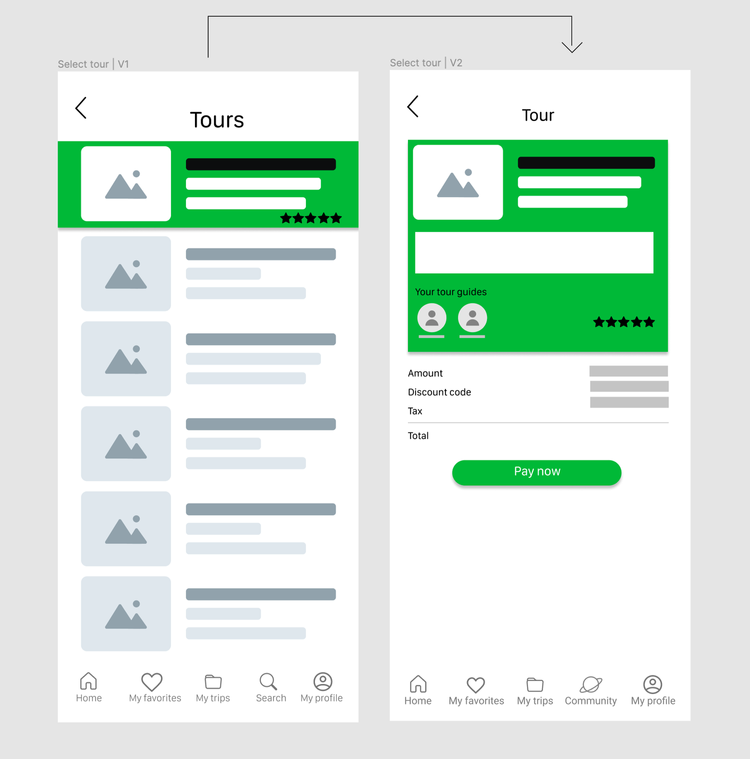
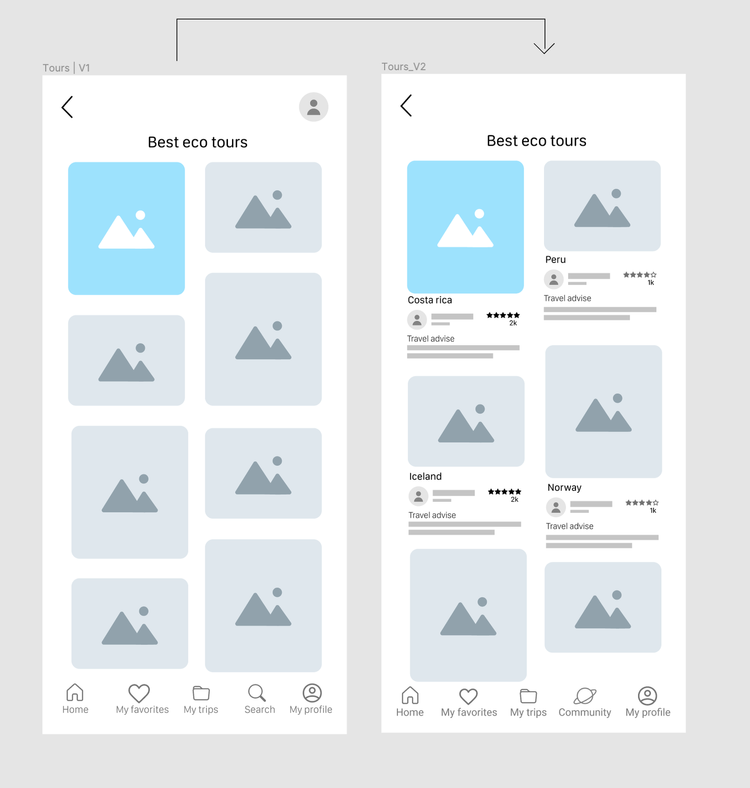
Users also wanted enhanced eco-tour descriptions that included specific local impact metrics, helping them understand the tangible benefits of their travel choices. Navigation clarity between the three experience phases emerged as another key improvement area, leading us to refine the information architecture and interaction design.
The testing process validated our core concept while revealing opportunities for enhancement. Users responded positively to the educational approach and community connection features, confirming that our strategy addressed real user needs in the sustainable travel market.
Final Product Experience
Community Connection

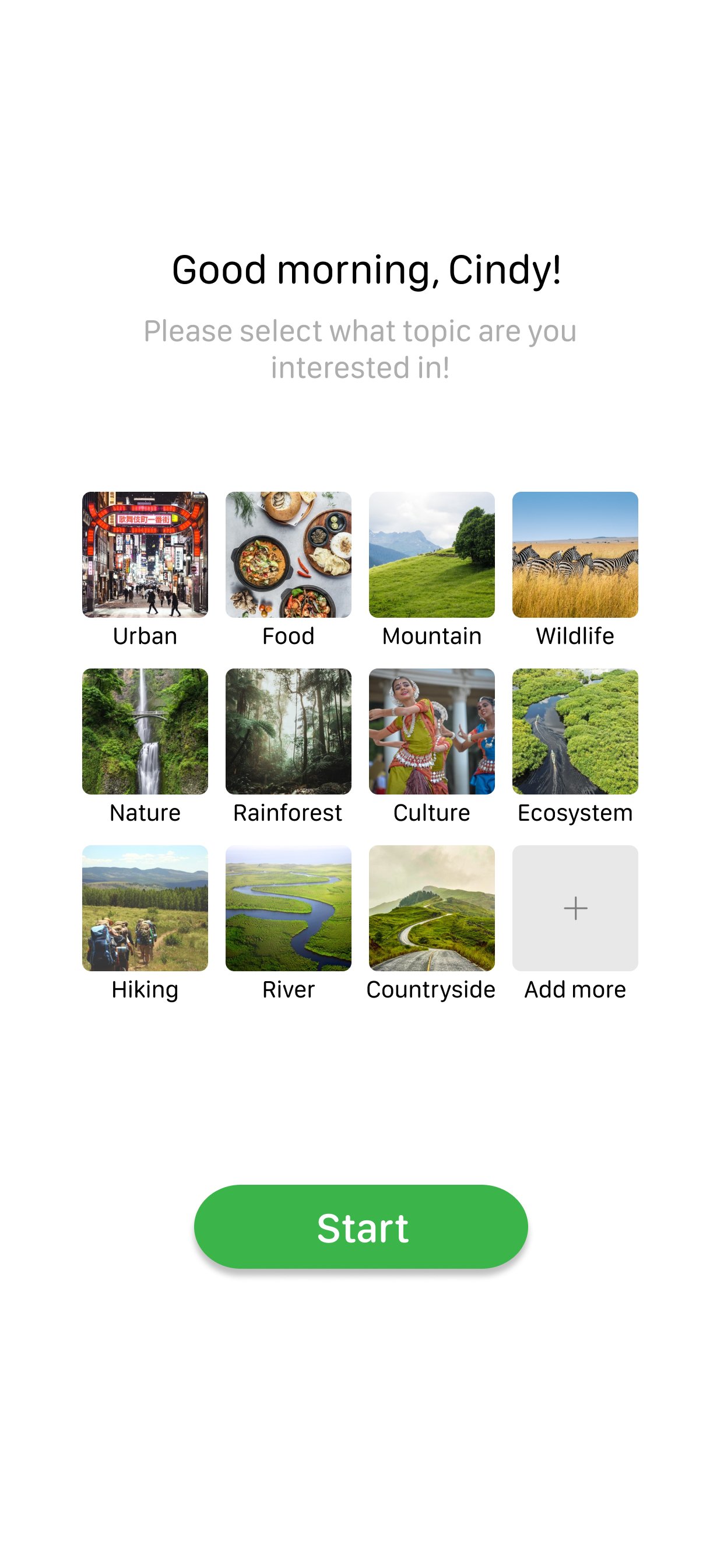
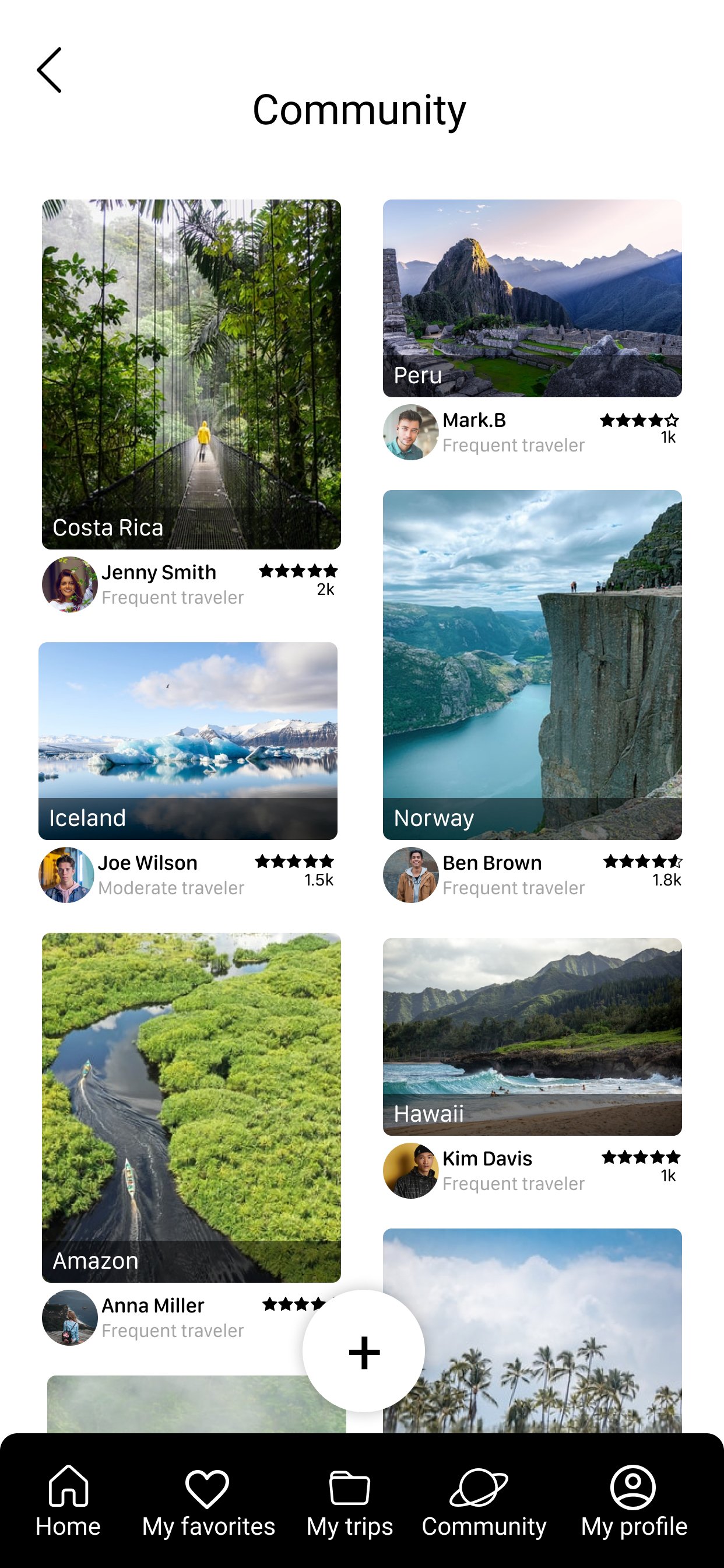
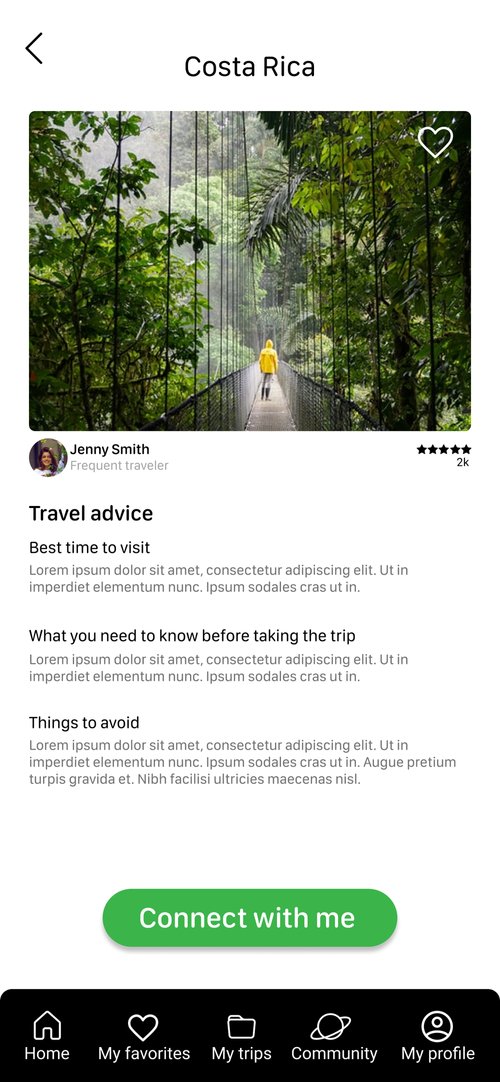
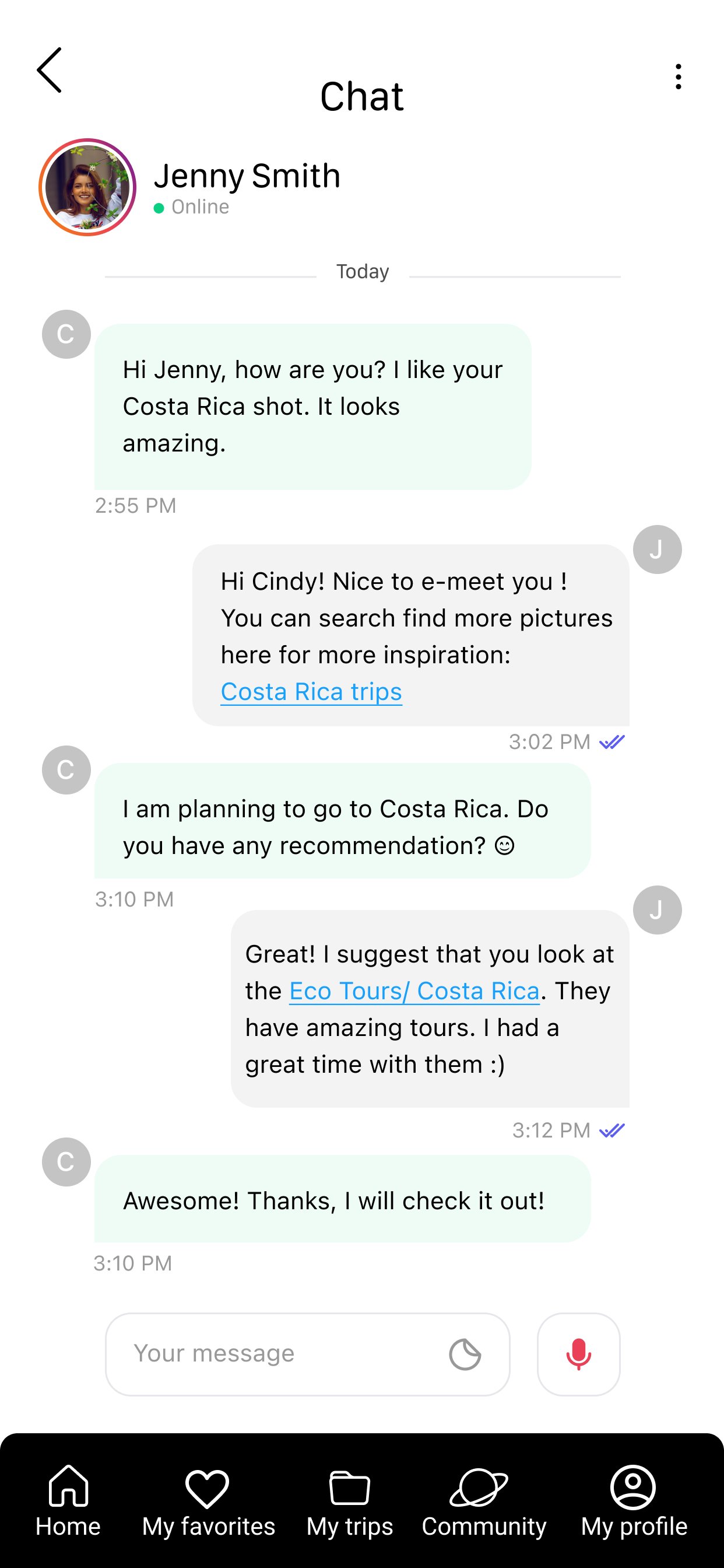
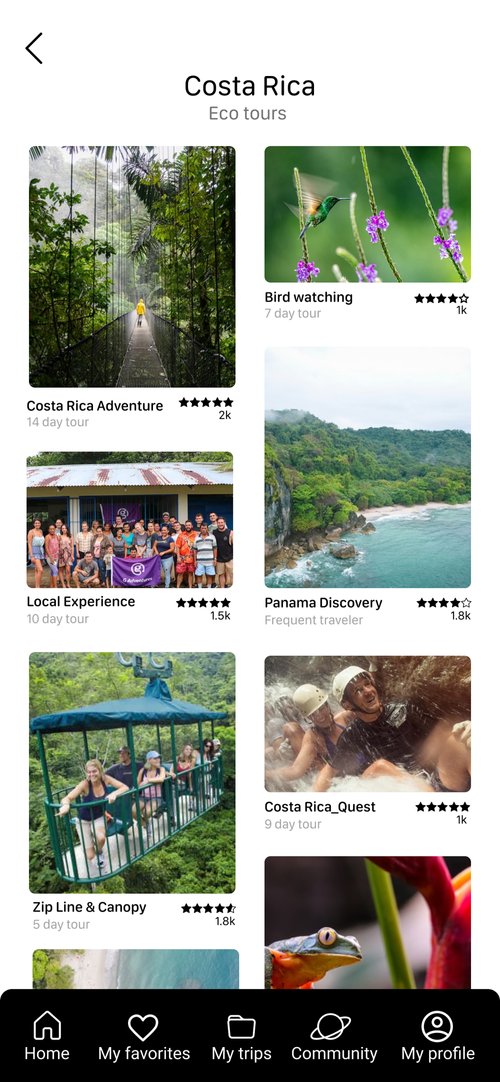
The community connection feature enables travelers to establish meaningful relationships with local people before their trips, creating anticipation and cultural understanding that enhances the overall travel experience. This pre-travel engagement transforms tourists into informed visitors who can contribute more meaningfully to local communities.
Local Education Hub
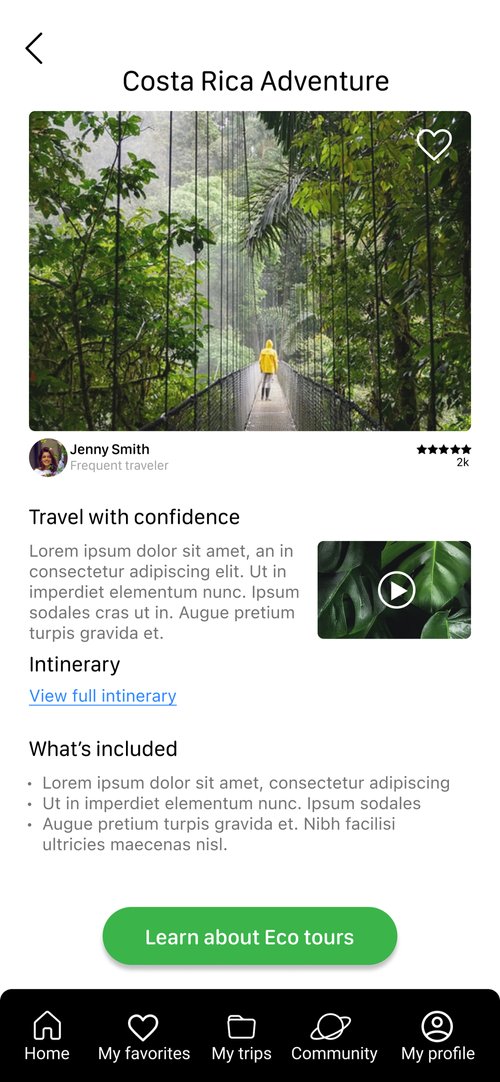

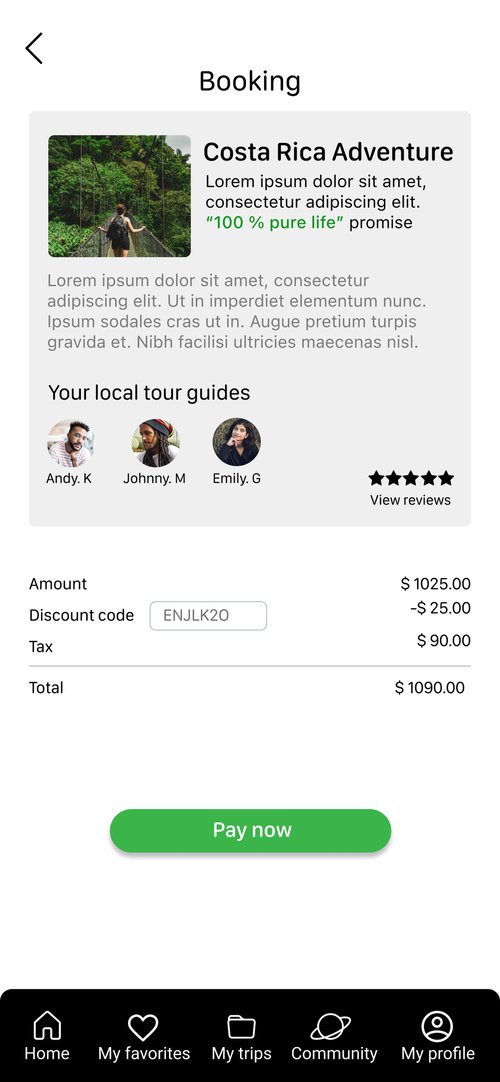
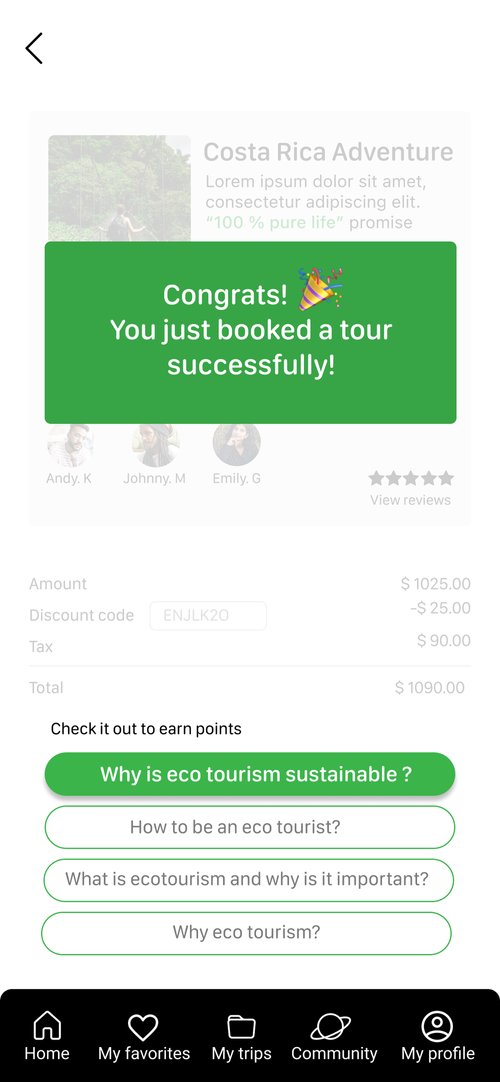
The local education hub provides contextual information about destinations, helping users understand local culture, nature, and environmental significance. This educational approach serves as motivation for travelers to engage with genuinely ecological and culturally respectful tourism experiences.
Environmental Impact Tracking
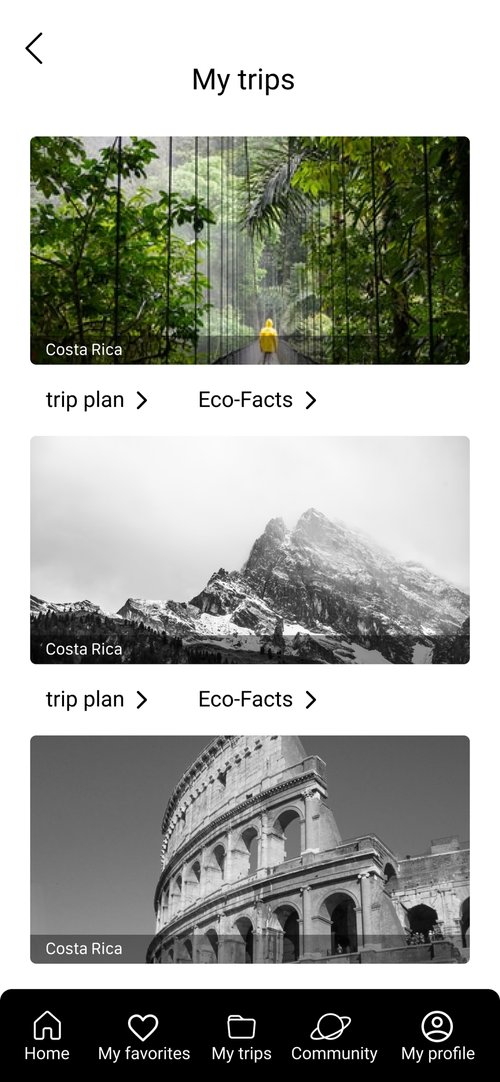
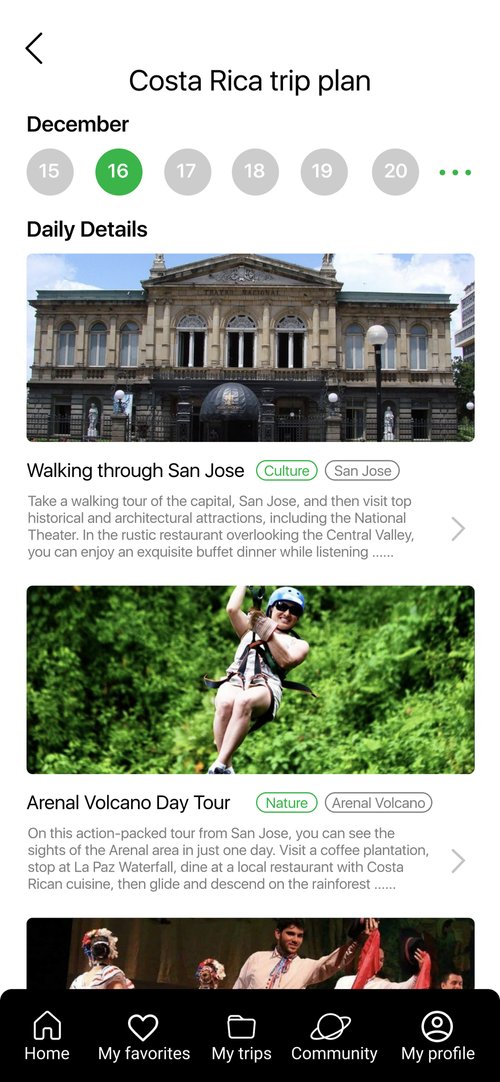
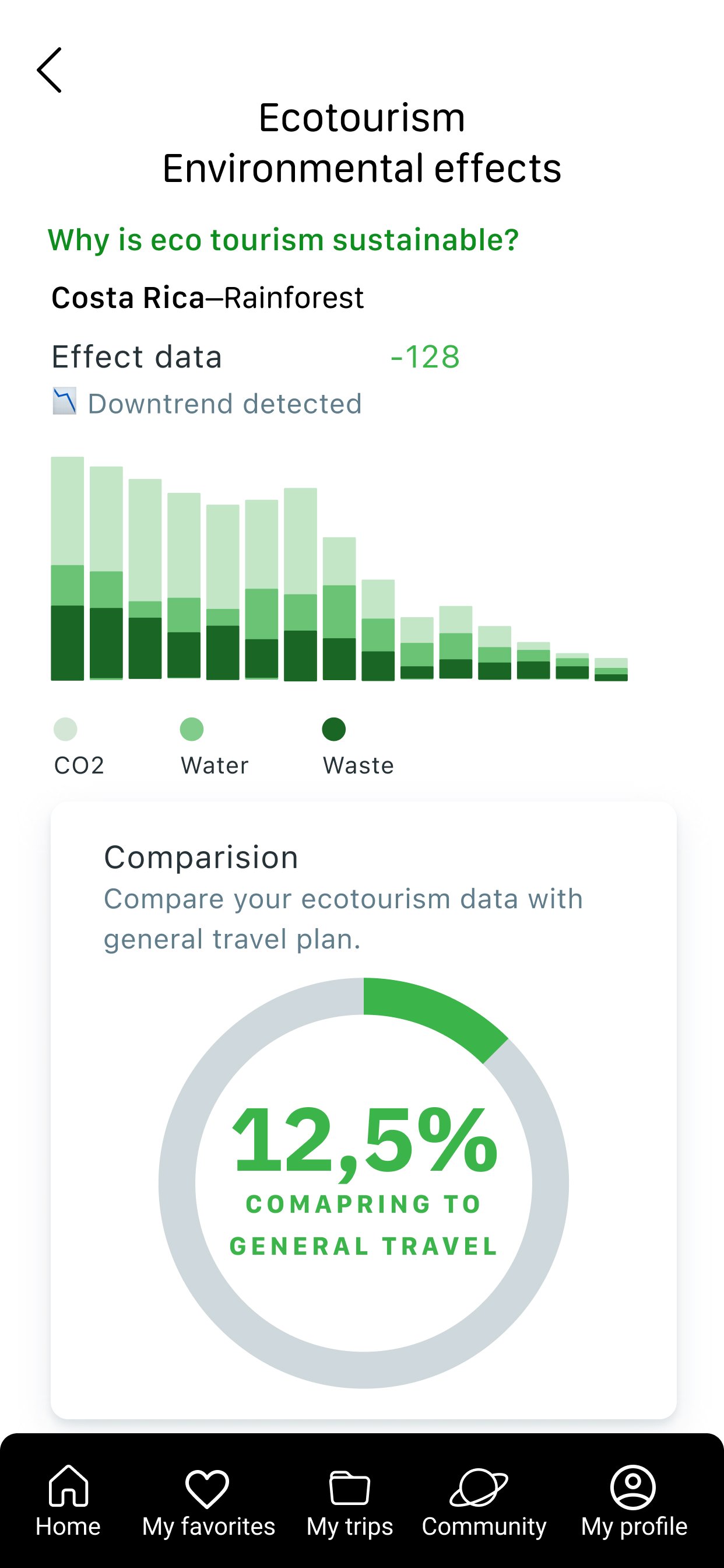
The environmental impact tracking feature provides transparent information about how each tour affects the environment, helping travelers make informed decisions about their activities. This data-driven approach builds trust while encouraging more sustainable travel choices.
Experience Sharing & Community Building

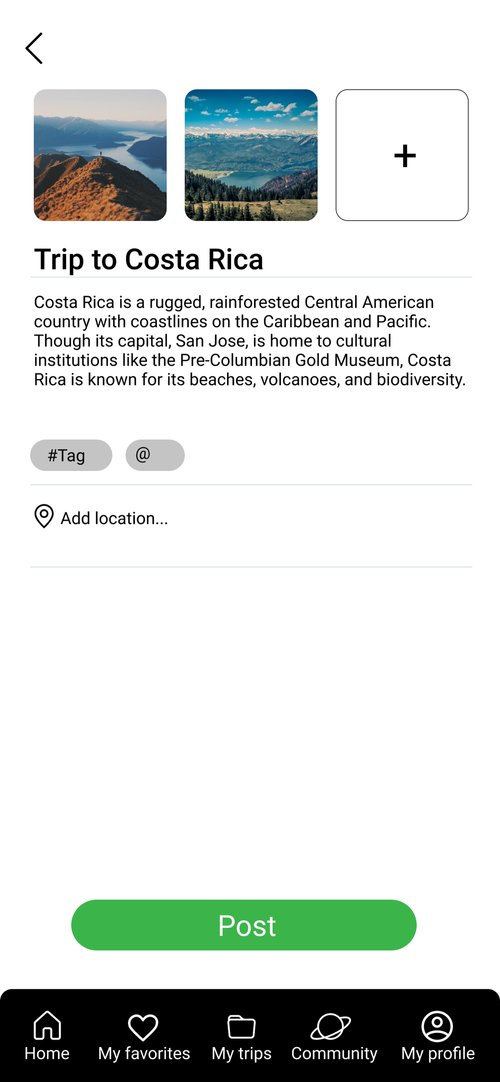
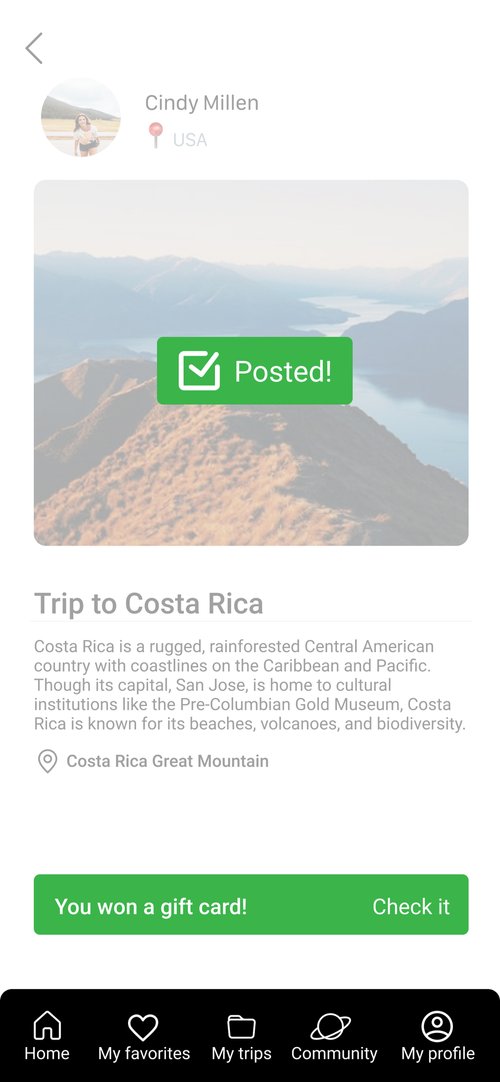
The experience sharing feature allows users to document and share their sustainable travel experiences, building a community of eco-conscious travelers while inspiring others to pursue meaningful tourism. This social aspect creates lasting connections between travelers and the communities they visit.
Eco-Points Reward System
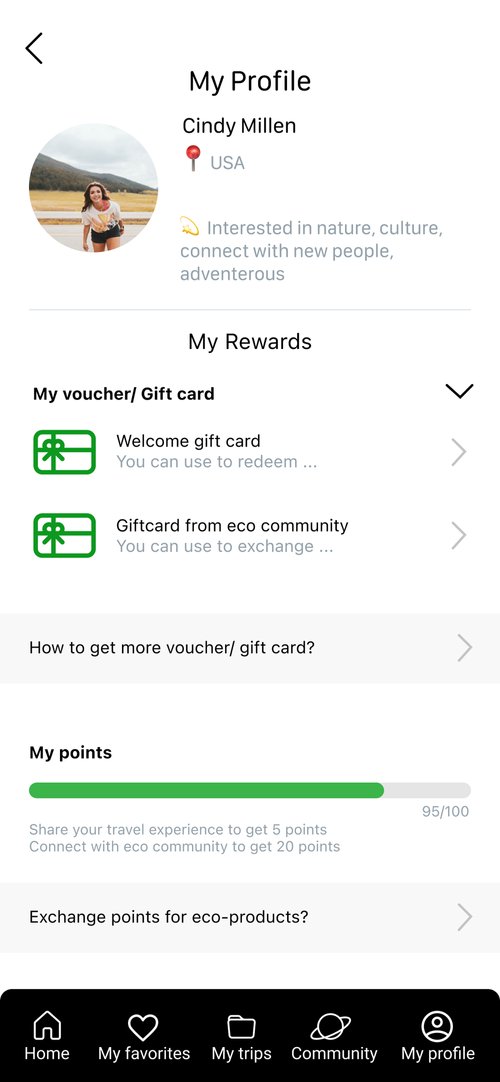
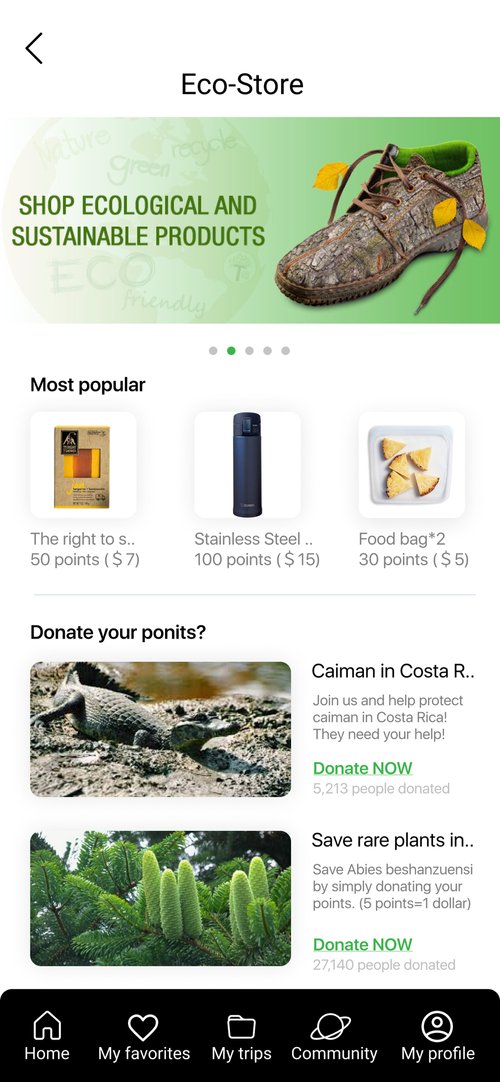
The eco-points system motivates users to make real ecological impact through their travel choices, encouraging participation in eco-friendly trips, support for local products, and donations to environmental conservation programs. This gamification approach creates measurable behavior change toward more sustainable travel practices.
Business Impact & Strategic Learning
The education-first approach successfully addresses the fundamental knowledge gap in sustainable travel while building authentic community connections that extend beyond individual trips. The platform’s transparency around local impact builds trust and drives repeat engagement, while the eco-points gamification system creates measurable behavior change toward more sustainable travel choices.
The business model leverages partnerships with local NGOs and tour operators, creating sustainable revenue streams that directly support the communities travelers visit. This approach ensures that the platform’s success is directly tied to positive local impact, creating a virtuous cycle of sustainable tourism growth.
Our comprehensive user research and iterative design process revealed that travelers are eager for meaningful experiences when provided with proper education and community connection tools. The platform’s success depends on maintaining authentic relationships with local communities while providing transparent, actionable information about environmental and social impact.
This project demonstrated how thoughtful product design can drive meaningful behavioral change by combining education, community connection, and transparent impact measurement in an underserved market with significant growth potential. The experience reinforced the importance of user-centered design in creating solutions that serve multiple stakeholders while advancing sustainable practices.